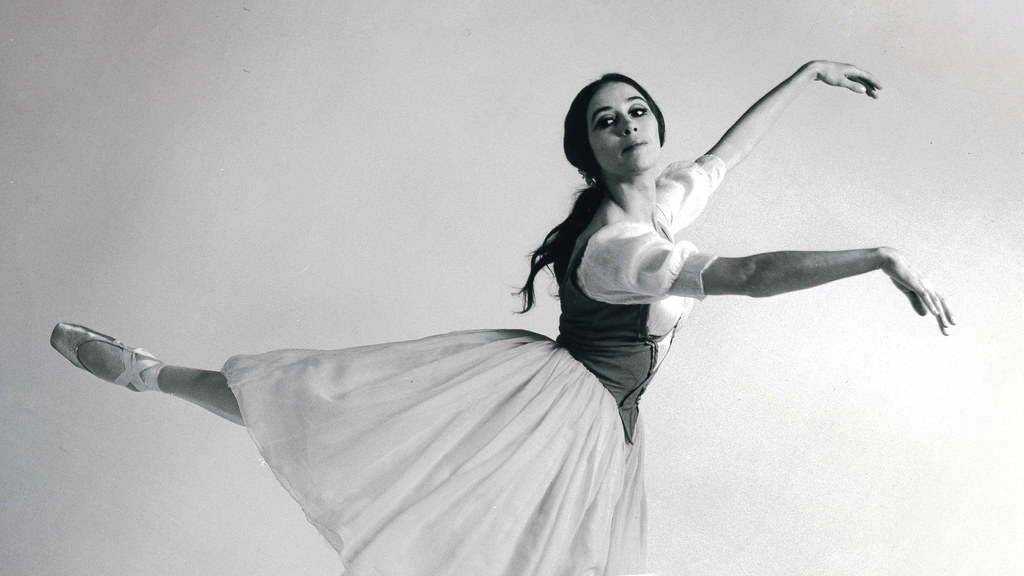News

Remembering Patricia Ruanne (1945–2022)
Remembering Patricia Ruanne (1945–2022)
The vividly expressive dancer brought ballet to audiences across the UK through her performances with The Royal Ballet Touring Company
The vividly expressive dancer brought ballet to audiences across the UK through her performances with The Royal Ballet Touring Company
The Royal Ballet is deeply sad to hear of the death of British ballerina Patricia Ruanne, who died on 1 November 2022 at the age of 77.
Ruanne, who joined The Royal Ballet in 1962 after studying at The Royal Ballet School, could easily have spent her career in the shadows of ballerinas like Svetlana Beriosova, Lynn Seymour and Antoinette Sibley who came just before her. She, however, would always regard herself lucky to have had such ‘a rich tapestry of talent to learn from’, and her own exceptional versatility as a dancer might well be credited to the fact that she was an extremely quick learner.
Ruanne’s combination of classical elegance and intuitive dramatic talent was noticed early on by Kenneth MacMillan, who cast her as the Girl in his ballet The Invitation when she was just 18. However, it was John Field, director of the Touring Company, who accelerated her rise through the ranks. He was, as Ruanne recalled, very generous in promoting young talent (‘throwing us in at the deep end’) and during the years that she danced with Field, she was given many leading roles, several of which were created on her. The challenging diversity of her repertory was, she believed, a profoundly formative influence, but more important still was all that she learned from Field about the importance of storytelling. ‘In some of those little towns in the north of England they had never seen a dancer…but the English do have a very strong theatrical tradition. What became important to me was the credibility of the character, the narrative element that we could find in the movement that audiences could relate to.’
Ruane was promoted to Principal of The Royal Ballet in 1969, but in 1973 she joined London Festival Ballet (now English National Ballet) where she was able to concentrate on the full-length classics. In 1977, she created the role of Juliet in Rudolf Nureyev’s Romeo and Juliet (with Nureyev dancing Romeo and her husband Frederic Jahn as Tybalt) and, according to the critic John Percival, performed with a tragic intensity that few ballerinas could rival. It was the darkly expressive beauty of Ruanne’s dancing which also drew Marcia Haydée to cast her as Tatiana, in the first British production of John Cranko’s Onegin.
Tatiana was one of Ruanne’s final roles with London Festival Ballet before she retired from the stage in 1983, although she remained with the company for another two years as ballet mistress. It had been Nureyev who first encouraged her to start coaching and, in 1986, as Director of Paris Opera Ballet, he invited her to join him. During the decade she spent in Paris, Ruanne played a significant role in the company’s revitalisation, assisting in the staging of classics as well as coaching a new generation of étoiles. After leaving Paris, Ruanne continued to use her gifts, working internationally as a freelance teacher and repetiteur and, between 1999 and 2000, spending a season as acting director of La Scala, Milan. Many dancers have since paid tribute to her rare mix of discipline and generosity, as well as her ability to transmit the essence of a role.
Kevin O’Hare, Director of The Royal Ballet, said:
‘I saw Patricia dance with London Festival Ballet many times. I recall the first time I watched her as Tatiana in Onegin and was struck by the depth of her characterisation. This distinctive ability to inhabit dramatic roles made for a very special contribution to the Royal companies as well, and greatly enriched the development of British ballet. I am sure many audiences across the country will treasure special memories of her performances.’